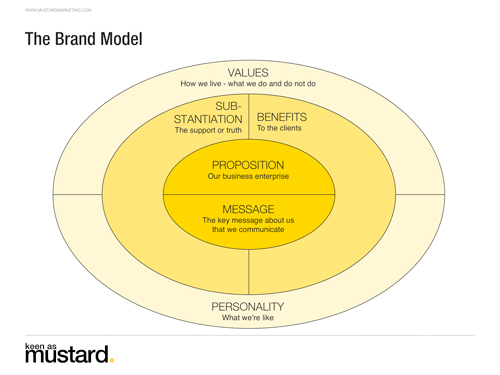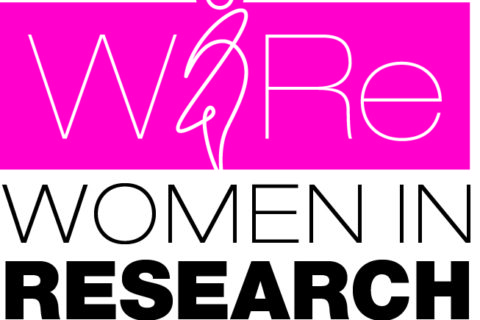Lucy Davison
Right now, the marketing research industry looks and feels rather ‘own label’. With a few notable exceptions, a consumer (client) walking the aisles of a marketing research industry supermarket would find a host of ‘me-too’ packages; a lot of similar messages and overwhelmingly bland designs. Where are the iconic brands of MR? The Apples, the Coca-Colas and the Toyotas?
Why does this matter? We’re a people industry – surely it’s all about personal contacts and not what you look like or say about your business? Well, here’s why I think branding is important: brands get to charge more for their products and services.
In a world where research company margins are being squeezed and growth is hard to come by, having a really differentiated and strong brand is one great way research companies can get ahead.
The same principle applies to people. A strong personal brand can help researchers to excel in their career. I was reminded of this a few weeks ago when I spoke at a ‘Women in Research’(WIRe) event in London; my topic was personal branding.
So I approached my WIRe talk using the same standard branding model as we at Keen as Mustard Marketing use for our company clients, but thinking of how to apply it to an individual. Here’s the model (but there are hundreds of others you can use instead – my suggestion is to pick one that suits you).
I like this model as it has layers; you get to peel back the onion to find the core – which is the proposition and message that is at the heart of your brand. Everything that goes into the onion should fit together to support the other areas – starting from the outside – the values and personality ‘skin’ and moving through the meaty substantiation and benefits to the core. But you can work the other way as well; starting at the core and then working out to support it.
It is important to acknowledge that working through this process should not involve adopting a new (artificial and plastic) identity; what actually works is authenticity. And the process should help you to concentrate your energy in the most effective ways. If you spend every hour of the day pretending to be someone you’re not, you’ll be exhausted and won’t have the energy needed to face your real work.
In my talk, I applied this model to famous and successful business women. For the outer layers, the personality and values, the important thing is to keep it focused and prioritise.
Pick no more than three personality traits to focus on e.g. Deborah Meaden is decisive, assertive, and focused; Christine Legarde is calm, intelligent, confident (and also quite a bit chic); Karren Brady is glamorous, determined, and single-minded.
And when thinking about values, try to stick to one or two; Anita Roddick turned her core values of sustainability and equality into BodyShop, Justine Roberts turned her values of motherhood and family into Mumsnet and Camila Batmanghelidjh lives and breathes her values as founder of Kids Company. Finding your values allows you to project them on others; something that often lands you with the work you want. If you add your skills and knowledge into the mix you might just get yourself some column inches too – become a thought leader – and there’s a lot of value in that.
These ladies might or might not have used the concept of personal brand to drive their success, but never forget that every single celebrity brand has gone through this process, and they use it to ensure they can be as sought after and profitable as any consumer or company brand.
This activity can help to focus efforts and accentuate strengths; for some people it can boost confidence by actually realising strengths they are in possession of.
Of course the underlying layers, of benefits and substantiation are where the true nature of your brand gets delivered. This is the underlying truth of what you are – your attributes and skills – your ‘product’ if you like. So from a market research perspective you need to interrogate your skills – are you a great writer with plenty of demonstrable report and presentation writing experience under your belt? Or are you brilliant on SPSS or Excel? It’s good to list your top three technical or functional skills – such as budget planning, project management or media buying, as well as your softer skills such as leadership or teamwork. It’s so important to think through the benefits your skills bring to your colleagues, boss, or potential employers. And how will you benefit? Be selective about which ones are truly authentic, you have to be totally true to yourself to be successful.
For example, Jamie Oliver’s brand benefits to customers might be; ‘I feel guided, not instructed’, ‘I have the confidence to give it a bash’ or ‘I love that feeling of accomplishment’.
Finally, to the central core of the brand onion – the proposition and message. It’s so hard to distil to a single word or phrase, as we are all complex and multifaceted human beings. Many research agencies struggle with this. But what is your elevator pitch? What do you want people to say about you when you are not in the room?
For example, Jamie Oliver’s proposition might be to “Take the concept of cooking, food and fantastic times to a whole new level of accessibility. By breathing passion and common sense into everything I touch, inspiring people, young and old, to keep things simple and get stuck in!”
Defining your proposition and message, and living up to it, will contribute powerfully to your career progression. And when you get to the top, don’t think you need to change your approach. Brands exist in the hearts and minds of the people who use them, and if you suddenly try to change them, you alienate the customer, which doesn’t do you an awful lot of good.
Finally, as marketing researchers we spend a great deal of our time looking after brands; why so little focus on our own company or personal brands? A company that really cares about brands, is one that will be really well placed to look after its clients’ brands as well.
Lucy Davison is Managing Director at Keen as Mustard Marketing



